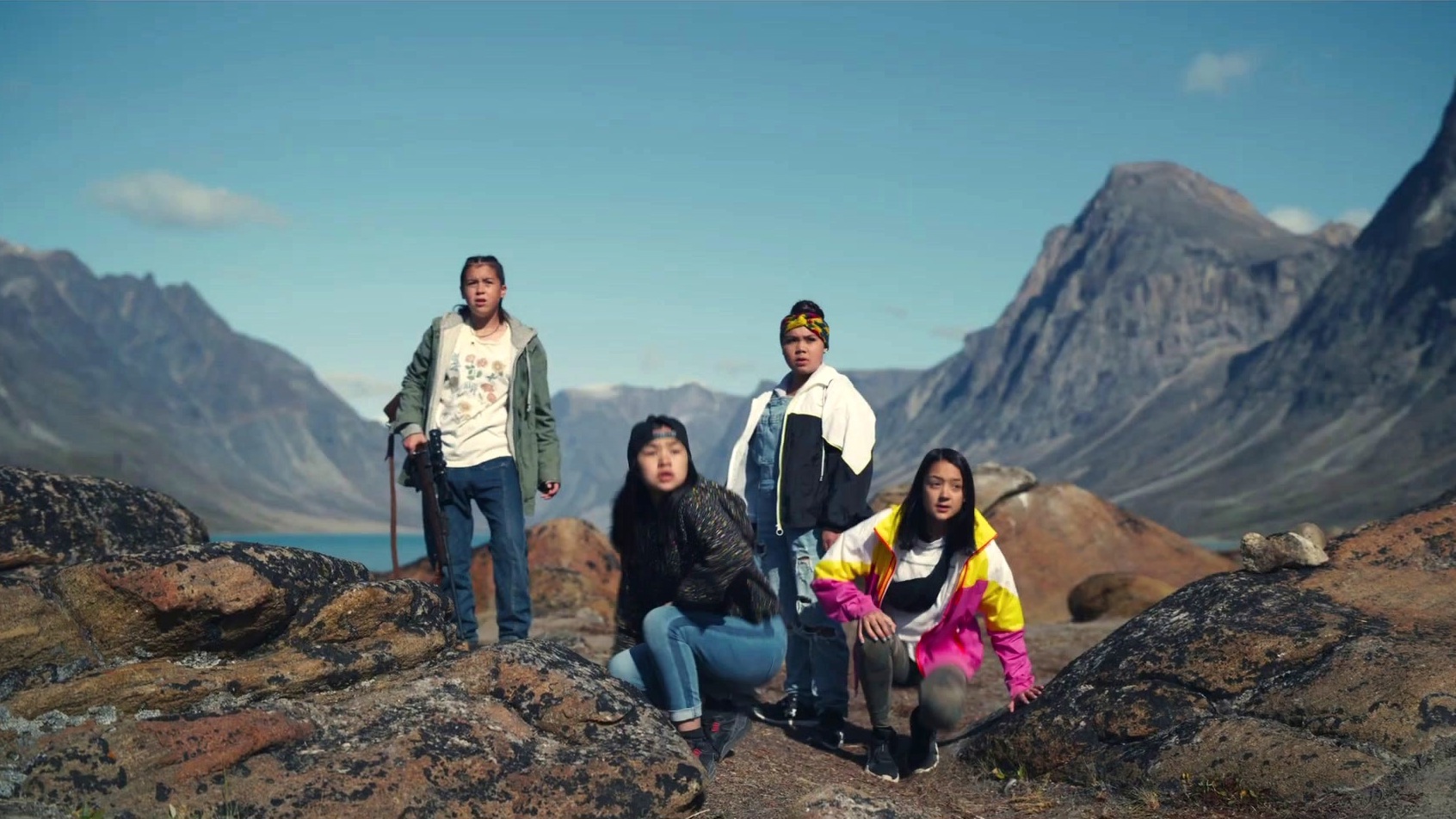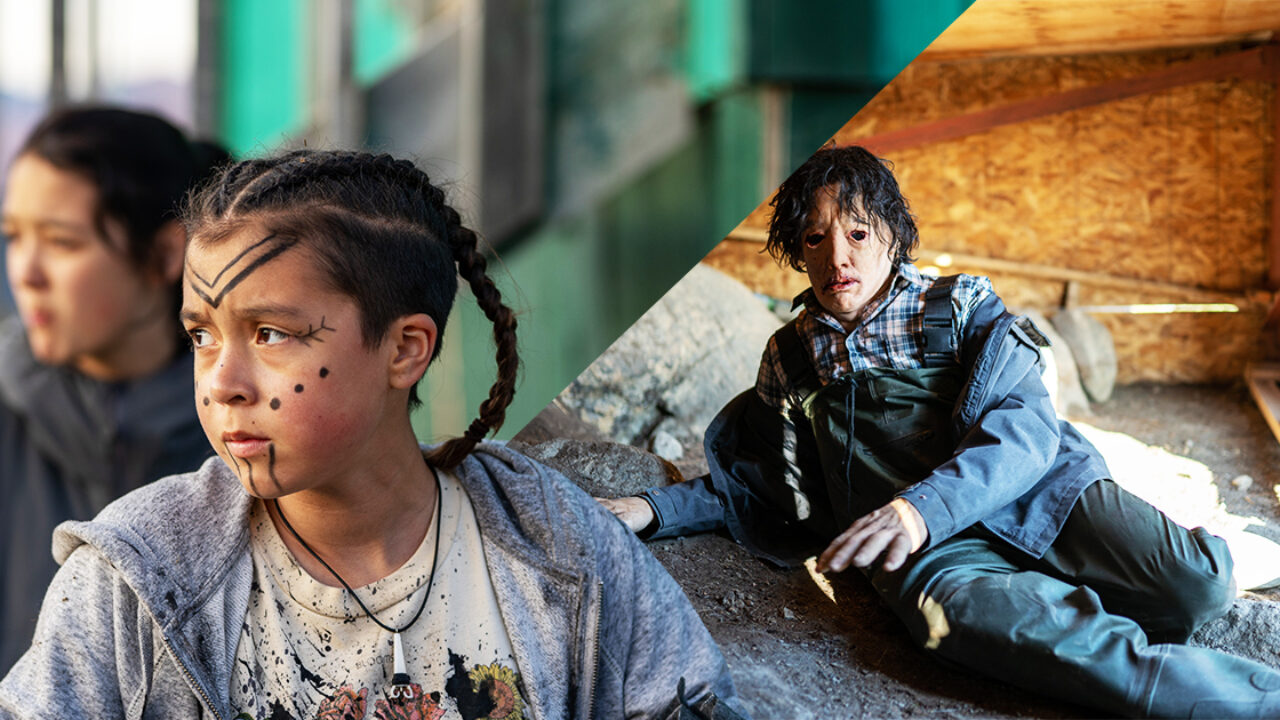Director / Writer Dana Ziyasheva Talks About 'Defenders of Life'
Director Dana Ziyasheva made her directorial debut, 'Defenders of Life' which focuses on the Ngäbe community, and the hardships Ngäbe girls faced in Costa Rica.


This month celebrates Indigenous communities and their cultures. But, when it comes to representing Indigenous people in media, we fall short. This is because Indigenous peoples’ stories are often told through the white gaze, and not by their people. When we think of authentic Indigenous films, there’s not much to think of apart from the Native American-led films in the 90s. Most of these films that featured Native Americans were either westerns, documentaries, or coming-of-age. There wasn’t much expansion of Indigenous peoples in other popular genres until now. I introduce to you, Slash/Back (2022), an Inuit sci-fi horror that is centered on four Inuit girls hunting alien monsters, and ultimately saving their village, Pangnirtung “Pang” from an alien invasion. Directed by Nyla Innuksuk, who is an Inuk herself, this film not only represents Inuit girls but girlhood altogether. The emphasis on girlhood such as friendship, sisterhood, and girl power in Slash/Back makes it relatable for Inuit girls and non-indigenous girls.
***WARNING: Spoilers Ahead***

Before we dive into the film, you need to know about our characters: Maika, Uki, Jesse, and Lee Lee. Every friend group has friend group archetypes, so that’s how we’ll introduce our characters. First, we have Maika, she’s the leader of the group. Her father is known to be the best hunter in Pang; in the opening scene, we see a young Maika learning how to hunt with her father, by showing her how to use a rifle. And, what separates Maika apart from the other girls is her inability to accept her Inuit heritage. Second, is Uki, who’s known to be the rebel of the group. She never backs down from a fight or dare, which leads her to discover that the strange behavior of the animals is the reason people are going missing in Pang. Uki is also the believer of the group, she originally thought the creatures that were inhabiting the animals were Ijiraq (Inuit mythology) but realizes they’re “aliens pretending not to be aliens” in order to suck blood from living hosts to “fuel” it for their spaceship. Then, there’s Jesse. Jesse is the mom of the group; the calm and collected one. She attempts to stay neutral whenever the girls are arguing (Maika and Uki). The last friend of the group is Lee Lee. Lee Lee is more privileged than the rest of the girls. Most of the community lives in less-developed homes, whereas, Lee Lee’s family lives in a more modern home. Another example, where we see Lee Lee as privileged, is when Maika asks how much data she has on her phone; her response is: “I don’t know, my parents pay for it”. Additionally, we have Aju, who is an unofficial member of the group. Aju is Maika’s little sister, she always tags along with the girls but is often left behind because she’s the youngest of them. And for that reason, Aju is the Drew Barrymore of the group because Aju reminds me of Gertie from E.T. (1982).
Maika’s father said at the beginning of the film, “the Inuit people have been hunting for generations” this is when he teaches Maika how to shoot a rifle, thereby passing on the tradition of learning how to hunt to survive. Slash/Back is a film about hunting, it’s about aliens hunting humans for their blood, but since the aliens arrived at an Inuit-populated community, this can be a metaphor for colonization. As many of us know, the Europeans arrived with their “ships” looking for land to conquer, and when they stumbled upon land that was already taken by the Natives, it became a battle for possession. But, the mistake the Europeans made was underestimating the Native people. The girls have come to realize that they shouldn’t fear the aliens, but the aliens should fear them because they’re the best hunters there are. Hunting is part of the Inuit culture, and it’s their only asset to kill the aliens.

As mentioned before, these aren’t your typical Invasion of the Body Snatchers aliens, they’re bloodsucking aliens. The aliens are parasitic organisms that suck a living host’s blood through their tentacles. They can also take over the host’s body through facial interaction (the tentacles have to go through the host’s eyes and mouth… ew). When the aliens take over human bodies, they have a rubbery-skin face, which is why Uki refers to them as the “Skins”. It turns out the aliens use their host’s ripped-off face as a disguise to get close enough to another human for blood extraction. Another aspect of the aliens is when they are in their host, they don’t walk properly, and contort their bodies when chasing their victims. The only way to kill the aliens is through slashing, either by slitting the throat (Uki slit the throat of the infected cub with an ulu) or decapitation (Uki decapitating the infected police officer with a flensing knife on a pole). Uki does a lot of the killing in this film. But apparently, when you kill the alien, it leaves a dark stain on your clothes, and the alien can trace the smell to seek revenge on the girls who murdered its babies. Finally, after Maika decapitates the final alien (with a snow knife), the parasites vanish, and the alien ship flees from Pang. The reason for the aliens’ departure could be that it sees Earth as too dangerous to inhabit after its babies were killed.
The Bike Chase Scene: One of the best scenes of Slash/Back is the scene of Maika, Jesse, and Lee Lee chasing after Uki on their bikes. Uki gave a rip-off deal to Aju, who took her fifteen dollars in exchange for sharing her phone with Aju. As a result, the girls chase after Uki to give Aju back her money; four kids riding on their bikes… sound familiar? The bike chase sequence gives so much adrenaline to the scene before any real action happens; those girls rode their bikes more vigorously than The Goonies (1985), E.T., and Stranger Things kids combined.

“Inuk pretending not to be Inuk”: This line was said by Uki to Maika after Maika believes Uki’s story that aliens are invading Pang. There’s an irony in this line, especially Uki’s line that follows before, when she said they’re “aliens pretending not to be aliens”. Throughout the film, Maika has been rejecting her Inuit culture; we see this when Uki tells the group that she thought the creatures were Ijiraq, and Maika tells Uki, it’s “dumb Inuk stuff”. As you know, Maika’s father is the best hunter of Pang; we see Maika carry a rifle strapped on her back, whether it’s on the trip with the girls or when she’s ready to fight the aliens. It’s clear that even though she doesn’t accept her Inuk identity, she still carries her father’s mantle as a hunter. Although her father taught her the way of hunting, there are moments when Maika is hesitant in her shots, which causes her to miss her aim. Perhaps, it is Maika’s unwillingness to be Inuk that causes her to lose touch with her Inuit culture; it is only when she accepts her heritage in the end, she can defeat the alien.
Girls Rule the Land: You’re probably wondering, where are the adults in this film? The adults are there, but they’re too busy dancing and getting drunk at the Winter Solstice dance. That being said, the adults have no knowledge of aliens infecting their villagers, except for Maika’s father. All the adults who knew about the aliens were either killed or taken over by them. Basically, Slash/Back follows the “adults are useless” trope, but in a good way because it gives the space for the girls to roam free in the open land. This film is dominated by teen girls slashing bloodsucking aliens with no adult supervision. Having the girls separated from the adults gives a sense that this big landscape of open waters, mountains, and fields is all theirs; in some ways, they’ve become cowboys, but on bikes.

The Soundtrack and the Gearing up Montage: The best scene followed by the bike chase scene has got to be the gearing up montage. This sequence shows Miaka, Jesse, and Uki gearing up tools to fight off the aliens with traditional Inuit weapons such as a snow knife (Uki), a harpoon (Jesse), and a more modern weapon, the rifle (Maika). We then see the three girls all walking together with their weapons, and we see kakiniit tattoos drawn on their faces. What’s interesting about the girls wearing kakiniit tattoos is, kakiniit tattoos are exclusively done by Inuit women for Inuit women. And with that, let’s get into the soundtrack. The soundtrack of the film is done by The Halluci Nation, an EDM group that combines music from different cultures, such as contemporary music from Indigenous peoples. Their song “SILA” with vocals from Inuk throat singer, Tanya Tagaq, can be heard throughout the film. The soundtrack from The Halluci Nation is intense as it is empowering, it gives so much adrenaline in the bike riding scene and the gearing up montage, it’s a powerful song that shows, you don’t mess with Inuit girls. You can listen to “SILA” by The Halluci Nation feat. Tanya Tagaq right here.
Slash/Back is now streaming on Shudder. And, if you’re interested in more Native American horror films, watch Prey (2022) streaming on Hulu.
Related lists created by the same author
Director Dana Ziyasheva made her directorial debut, 'Defenders of Life' which focuses on the Ngäbe community, and the hardships Ngäbe girls faced in Costa Rica.
Related diversity category
The original series is now on Netflix, you should definitely give it a watch. And if you’ve already seen it, watch it again.
Related Movie / TV / List / Topic
The film exhibits a respect for the craft and an empathy for human tribulations that have historically been ignored.